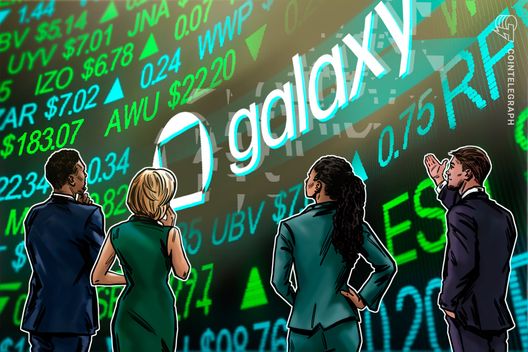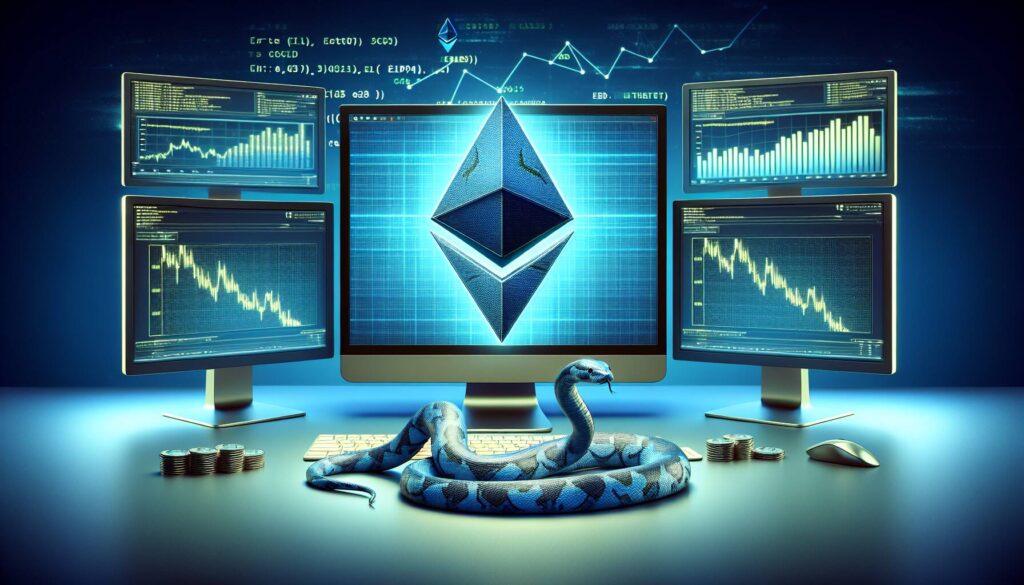In a groundbreaking move for the cryptocurrency industry, Galaxy has made history by becoming the first company listed on Nasdaq to tokenize its shares using the Solana blockchain. This innovative step is not just a technical feat but signifies a pivotal moment in the integration of traditional equity markets with blockchain technology.
Tokenization allows assets to be represented on a blockchain, enhancing transparency and potentially increasing liquidity. By adopting this modern approach, Galaxy showcases a growing trend where traditional financial markets are beginning to leverage the efficiencies and capabilities of onchain solutions, marking a significant shift in how equity transactions may occur in the future.
“With Galaxy’s pioneering efforts in tokenizing its equity on Solana, we are witnessing an evolution in how companies can interact with their investors,” said experts in blockchain technology. “This is a clear indicator that the barriers between traditional finance and the digital asset world are continuing to dissolve.”
The move comes at a time when there is increasing interest in decentralized finance (DeFi) and the potential it holds for reimagining how financial systems operate. As more companies consider the advantages of blockchain technology, the landscape of investment and ownership could be poised for a major transformation.
Galaxy’s significant step forward not only underscores its position at the forefront of innovation but also sets an example for other companies, affirming that the future of equity markets may well reside on the blockchain.
Galaxy Tokenizes Shares on Solana
The recent development of Galaxy becoming the first Nasdaq-listed company to tokenize its shares on the Solana blockchain marks a significant milestone in the intersection of traditional finance and blockchain technology.
- First Nasdaq-Listed Company: Galaxy’s move sets a precedent for other companies on Nasdaq to explore blockchain tokenization.
- Tokenization of Assets: Tokenizing shares can increase liquidity and accessibility for investors, potentially changing how stocks are traded.
- Integration of Blockchain Technology: This shift towards on-chain equity markets may encourage more traditional firms to adopt blockchain solutions.
- Impact on Investors: Investors may benefit from reduced fees and faster transaction times associated with blockchain transactions.
- Future of Equity Markets: This event could signal a trend towards more transparent and efficient markets, reshaping how capital is raised and invested.
This development illustrates that the financial landscape is evolving, potentially offering new opportunities and improved experiences for investors.
Galaxy’s Landmark Move: Tokenizing Shares on Solana
Galaxy’s recent milestone as the first Nasdaq-listed company to tokenize its shares on the Solana blockchain marks a significant shift in the financial landscape, illustrating the growing intersection between traditional equity markets and decentralized finance. This initiative not only highlights the increasing demand for tokenization but also positions Galaxy at the forefront of innovation within the financial services sector.
In comparison, other companies venturing into the blockchain space often utilize Ethereum for their tokenization efforts, which, while established and trusted, suffers from high gas fees and scalability issues. Galaxy’s choice of Solana, known for its speed and lower transaction costs, can greatly enhance user experience and operational efficiency, giving it an edge over competitors. This move could attract a diverse range of investors, especially those interested in the burgeoning world of digital assets.
However, this pioneering step comes with inherent risks, particularly regulatory scrutiny that may arise from tokenizing shares. Other traditional companies that have dipped their toes into blockchain have faced challenges navigating the complex legal frameworks surrounding digital securities. Thus, while Galaxy can potentially benefit from heightened investor interest and market visibility, it also risks potential backlash from regulatory bodies concerned about compliance and market integrity.
This innovation could benefit tech-savvy investors and blockchain enthusiasts who are keen on exploring modern investment options. Simultaneously, it may create complications for traditional investors unfamiliar with on-chain technology, raising the barrier to entry for those who prefer conventional trading methods. As the industry watches closely, Galaxy’s success could either pave the way for more companies to follow suit or deter others who fear the associated challenges and uncertainties of a regulatory landscape still catching up with technological advancements.
















